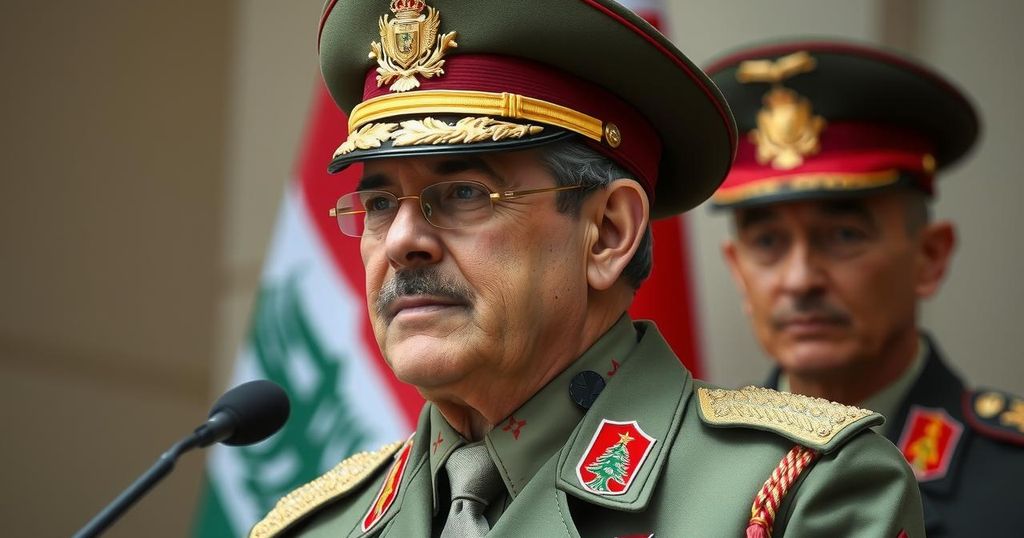Joseph Aoun has been elected as Lebanon’s new president, ending a two-year power vacuum. Supported by multiple political factions and international allies, Aoun’s installation follows a ceasefire between Israel and Hezbollah. The election highlights Lebanon’s enduring political challenges and the need for stabilization amid ongoing crisis situations in the country.
Lebanon’s parliament has appointed Joseph Aoun, the army chief, as the country’s new president, concluding a protracted political stalemate that lasted over two years. Aoun’s election was underpinned by support from multiple political factions, alongside backing from international powers including the United States, France, and Saudi Arabia. The election followed the withdrawal of a competing candidate, aligned with Hezbollah, who endorsed Aoun, bringing a shift in the political landscape.
The presidency, traditionally a ceremonial position, is designated for a Christian leader within Lebanon’s sectarian governance framework. Aoun’s election came six weeks subsequent to a ceasefire agreement that concluded the intensive conflict between Hezbollah and Israel, which had notably diminished Hezbollah’s influence in the region. The Lebanese Army, which remained neutral during the conflict, is expected to uphold peace and manage security in southern Lebanon as Israeli forces withdraw.
Joseph Aoun, 60, has been at the helm of the Lebanese Army since 2017, steering the institution through various crises, including significant military conflict, economic distress, and the devastating Beirut port explosion in 2020 that resulted in more than 200 fatalities. Since the parliamentary elections in May 2022, Lebanon has struggled to form a functioning government, impeding essential governance and legislative activities.
The election process itself was contentious, with lawmakers unsuccessfully attempting to elect a president on twelve occasions, culminating in Aoun’s election where he garnered 99 votes in the second round. Despite initial challenges in meeting the necessary two-thirds majority, Aoun achieved the required support, inciting celebrations nationwide. His inauguration represents a noteworthy moment in Lebanese politics, particularly in the context of the ongoing need for stability and governance amid persistent economic and political turmoil.
Lebanon’s political framework is characterized by a delicate sectarian power-sharing system, which has led to complex dynamics within the government. The office of the presidency, which is allocated to a Christian representative, is pivotal within this structure. The recent conflicts involving Hezbollah and Israel, coupled with an unprecedented economic crisis, have further complicated Lebanon’s governance. Following the 2020 Beirut port explosion, public confidence in political leadership diminished significantly, complicating the path to electing a new president. The elected Joseph Aoun symbolizes a possible turning point amid prolonged instability and offers hope for a return to effective governance in Lebanon.
In summary, the election of Joseph Aoun as Lebanon’s president marks the resolution of a significant political stalemate that had persisted for more than two years. This development is underlined by international support and internal political shifts. Aoun’s leadership is anticipated to guide Lebanon towards stability while addressing the pressing economic and security challenges that persist in the nation. His election may pave the way for a more functional government and renewed confidence in the Lebanese political system.
Original Source: www.bbc.com






